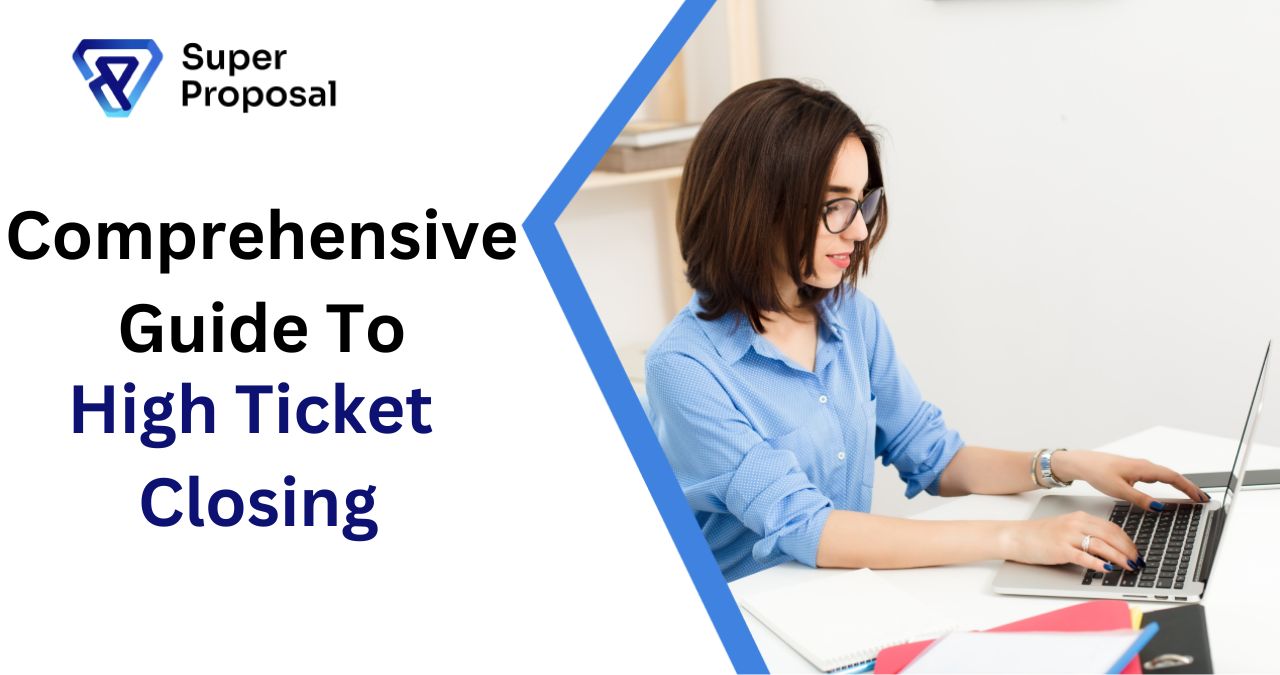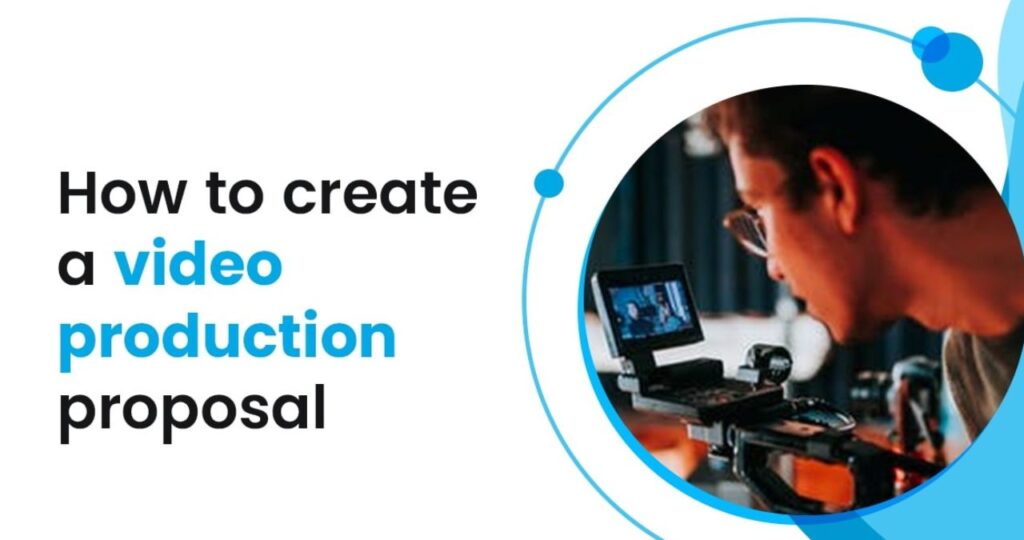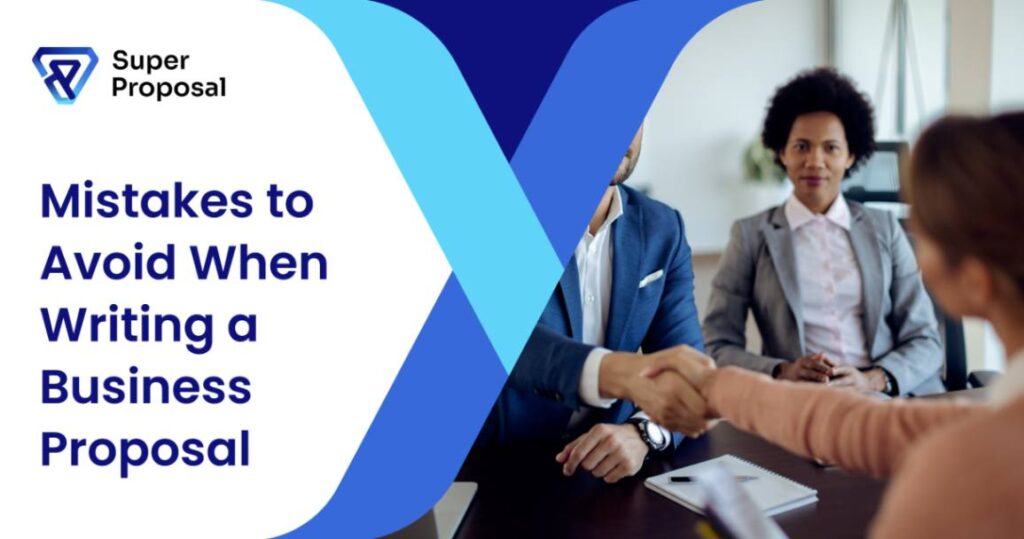Comprehensive Guide To High Ticket Closing in 2025
DEC 23, 2024 | LAST UPDATED ON DEC 23, 2024 BY ANGELICA NAIDU

High ticket closing is selling expensive products/services to a prospect, requiring them to invest a significant amount. High-ticket sales are profitable for companies but pose challenges that can kill excellent high-ticket deals.
From heavy prerequisites and late-joining decision makers to unexpected security reviews, it takes a strategy to overcome these. Salespeople can use this guide to arm themselves with knowledge and practical advice to make high-ticket sales smoother and more successful.
Whether you are an experienced sales executive or a novice, these strategies will enable you to close more high-value sales deals and increase revenue.
Table of Contents
ToggleWhat Is High-ticket Closing?
Any strategy is available to close clients, but high-ticket closing is unique. Here are a few reasons why you should choose it.
Less Context Switching
High-ticket sales enable sales professionals to handle a few large deals instead of several small sales. With high ticket closing, you get a higher profit margin as it focuses on considerably larger deals. This effect increases productivity and job satisfaction by maximizing every minute and all resources utilized.
More Control
High ticket customers know their needs better and are less likely to spend hours negotiating or haggling. This makes it easier for the salesperson to manage the process with much less back-and-forth and enables more streamlined and predictable negotiations.
It can lead to a faster closure of deals and more positive client experiences.
Higher Earnings Potential
High-ticket sales carry a high earning potential since each successful deal will be worth a considerable amount of money in the form of commissions or profit.
This incentive will encourage the sales professionals to spend more time and effort developing close relationships and delivering quality service, resulting in job satisfaction and financial stability.
Specialization Opportunities
High ticket selling can easily lead to niche markets or specialized industries in which salespeople can focus on particular areas of specialization. It can add much more credibility, thereby quickly building customer trust and making the salesperson distinct from his competitors. There is also a lot of potential for career development, even reaching the stature of becoming a thought leader in one’s field.
The Process of High Ticket Closing
The process of high ticket closing might be daunting for most. Here we are, with a simple guide to help you understand the process and how it works.
Initial Contact
Initial contact is a personalized approach to reaching potential clients through phone calls, emails, or in-person meetings.
Ensure that such an approach is tailored toward their interests and needs because the first interaction will lay the foundation for the rest of the relationship. It should be memorable and enjoyable.
Qualifying Prospects
Qualifying prospects is a stage where you ensure the buyer can afford your service or product and is ready to invest. Before going further, you should know that your prospect has the financial capacity and willingness to invest.
It saves you time and other resources in the long term because you are only focused on those who are likely to convert.
Building Relationships
Develop trust through interactions and shared value. Create an emotional bond with your leads by continuously giving value and establishing trust.
Continuous communication through follow-up emails and calls that contain valuable information, or meetings establish you as a trusted and knowledgeable business partner.
Nurturing
After you’re done with relationship building, address their concerns and provide resources to keep the prospect engaged. Keep them in touch with your concerns and valuable resources.
These ongoing engagements keep your brand in mind and help build a foundation for successful sales. Be proactive in providing information that can lead them to make informed decisions.
Pitching
Pitch the offer tailored to the client’s needs. When presenting your offer, tailor it to the client’s unique needs and challenges.
Highlight how your solution can solve their problems and add value to their business.
A personalized pitch shows that you’ve taken the time to understand their situation.
Sales Proposal
Once you’ve pitched your offer, create a detailed sales proposal addressing client needs.
Create a comprehensive proposal for sales that clearly outlines how your solution meets the client’s unique needs.
Providing detailed prices, timelines, benefits, and a well-structured proposal can be a significant tool in convincing the client that they should move forward with you.
Closing the Deal
The final step is closing the deal. Negotiate terms and close the deal. When the client is interested, negotiate the terms and close the deal. Be willing to work through any final concerns.
A smooth closing process can ensure a smooth start to your ongoing relationship.
9 Tips for Closing High-Ticket Sales
High ticket closing is a strategic approach. Having a good understanding of the buyer’s mindset is essential. Hence, these 9 tips will help you understand the buyer’s mindset and make better decisions.
1. Use a Qualification-Focused Sales Methodology
High-ticket sales typically have long sales cycles. Therefore, the leads often tend to be unqualified.
This can be very frustrating, especially when a lot of effort is put into going after a deal that is not qualified.
Adoptions of qualification-focused sales can remarkably make the process less messy while leading to better success rates on big-ticket sales.
Two popular methods are the Sandler Selling System and MEDDIC.
- Let’s understand the Sandler selling system. It involves mutual respect and a step-by-step progression in a consultative sales cycle. Such a sales methodology’s primary interest is relationships, extensively qualifying prospects, and getting mutual value and a fit agreement between two parties. It consists of a set of predetermined steps involving initial discovery, needs analysis, and mutual commitment. In this, prospects who will not work can be disqualified early during sales.
- Now, let’s see what the MEDDIC system is. This framework is specifically for complex, high-value sales. MEDDIC stands for Metrics, Economic Buyer, Decision Criteria, Decision Process, Implicate Pain, and Champion. Each of the elements in this framework helps systematically qualify prospects:
- M- Identify success metrics of your prospect
- E- Identify the decision maker.
- D- Prospects decision-making criteria.
- D- prospect’s process to reach the final decision
- I- identify the pain points pushing prospects to look for a solution
- C- finalize the “champion” to lead this prospect.
2. Formalize Relationship-Building with Multiple Stakeholders
High-ticket sales usually involve the buying-in of 6 to 10 decision-makers; each has unique information and influence. Account mapping, therefore, helps manage it by understanding the roles and influences of each stakeholder involved. Multi-threading becomes a strategy for simultaneously establishing and maintaining relationships with different stakeholders.
Identify champions within the organization who can champion your cause. Formalizing these relationship-building activities ensures that you have proper support and alignment, increasing your chances of closing deals from high-ticket sales.
3. Create ROI Messaging for the Economic Buyer
The major concerns of financial decision-makers about return on investment must be addressed by the messaging, focusing on financial benefits. Interactive ROI calculators are used to present the potential financial impact of your solution.
Testimonial videos that contain financial metrics can be added to give real-world evidence of success. Comparison charts and case studies demonstrate how your solution performs better than the alternatives.
By focusing on tangible financial outcomes, you can communicate value and persuade the economic buyer to make a favorable decision.
4. Use Sales POCs and Sales Engineering
Sales POCs are pilot projects that enable clients to try out your solutions on a smaller scale before they decide to go for a full implementation. These POCs help minimize risk for buyers by offering concrete proof of how effective and reliable your solution is.
Sales Engineers are specialists who customize solutions to address clients’ unique needs. They collaborate closely with the sales team to guarantee that the solution is technically viable and fully meets the client’s expectations.
POCs provide a low-risk way for clients to validate the solution.
- Builds trust and credibility by demonstrating the effectiveness of a solution.
- Can create a beachhead for expansion within an organization by achieving a POC.
Through the leverage of Sales POCs and sales engineering, one can increase the chances of closing high-ticket deals.
5. Create Mutual Action Plans (MAPs)
Mutual Action Plans, or MAPs, are cooperative roadmaps that identify the specific steps, responsibilities, and timelines for closing a deal. These plans align the seller and the buyer on the same page while working toward a common goal. They break down complex sales cycles into manageable tasks and thus simplify the process while keeping the momentum going, reducing the chances of delay.
Each step of a MAP is clearly defined, assigned to a specific role, and accompanied by deadlines, encouraging transparency and accountability. Platforms like Dock provide intuitive and collaborative spaces for creating and managing MAPs, helping monitor progress and change the plans in real time.
This alignment and clarity can significantly enhance sales processes’ efficiency and success rate.
6. Focus on Buyer Enablement
Buyer enablement gives buyers the tools and information to make a smart buying decision. Let’s understand why it is important to focus on buyer enablement.
- Modern buyers are well-informed, with over 60% indicating that knowledgeable sellers who understand their needs have the most significant positive influence.
- High-ticket deals typically involve stakeholders, including CFOs, who need clear ROI information. Being unprepared can impede agreement.
- Utilize Digital Sales Rooms (DSRs) to consolidate enablement materials and work alongside buyer champions to create customized pitch decks. Recognize each stakeholder’s distinct “jobs” and provide pertinent content, such as product comparisons and expert guides, to ensure that all parties are aligned and confident in their decision-making process.
Roles Involved in High Ticket Closing
High ticket closing involves majorly two people. One is an appointment setter and a closer. With the help of these two, it becomes easier to close high-ticket prospects. Let’s understand their roles in detail.
Appointment Setter
The Appointment Setter is a critical part of a sales process and is usually responsible for qualifying leads and scheduling meetings with them.
This person should have good communication and organizing skills to interact with potential clients who understand their needs and discern whether they fit the service well.
Key skills should include thorough research over leads, efficient use of CRM tools, and, most importantly, a nice and professional demeanor during each interaction.
The Appointment Setter should also be skilled in handling objections and possess a high level of persistence to ensure a constant stream of qualified meetings for the sales team.
Closer
The Closer is the key figure in the final stages of the sales process, building strong relationships with clients, delivering strong pitches, and negotiating terms to close the deal.
This role requires exceptional interpersonal and communication abilities, deep knowledge about the product or service sold, and flexibility with various client needs and preferences.
Skilled in managing objections, closing techniques to be done by the closer, maintaining high professionalism in one way, and integrity in the negotiation process for strong and sustainable business relationships with those being closed.
Skills Required for High Ticket Closing
Having a few skills is essential for someone looking to close high-ticket clients. Below is a list of skills that can equip you with the right power and confidence to close high-ticket client
Confidence and Charisma
Confidence and charisma are the keys to any high-ticket closing. Sellers must project authority and trust, helping clients understand they make a wise investment.
In this case, composure, expertise, and rapport-building come into play. Charisma helps overcome objections and create a positive rapport, which is critical in any high-value deal.
Understanding Client Needs
Conducting high-level research and active listening to determine the exact pain points, as understanding clients is the main point for a high-ticket close.
Deeply understanding solutions allows a greater likelihood of successful close rates and increased long-term client retention.
Excellent Communication and Presentation
Excellent communication and presentation skills are crucial in closing high-ticket sales. The value proposition will be communicated clearly through clear, concise, and compelling messages.
The seller must, therefore, be effective in writing and verbal communications, using persuasive storytelling and data-driven insights to engage and convince stakeholders, as presentations may make or break a deal.
Negotiation and Persuasion
High-ticket closings involve negotiations and persuasive skills. The seller will need to find mutually satisfactory solutions to manage objections, close the gap in his expectations with his client, and negotiate understanding and leverage on prioritizing to reach a suitable agreement for everyone. Persuasive techniques help the client decide.
Knowledge of Closing Strategies
Knowledge of closing strategies is the key to high-ticket sales. Such techniques as creating urgency, using a trial close, and using social proof all help expedite closing. Sellers must recognize the right moment to apply these tactics so that they are utilized effectively to close the sale without appearing pushy or insincere.
Tools for High Ticket Closing
Equipping yourself with the correct set of tools enables you to close faster and better. We have listed a few important tools to help you enhance your closing rates.
CRM
A CRM system helps manage and analyze customer interactions and data throughout the sales lifecycle. It supports sales teams with a centralized customer information repository, allowing them to track better, communicate, and build relationships. CRMs also provide insight through analytics, helping them identify trends and opportunities for upselling or cross-selling.
In high-ticket deals, where relationships and detailed tracking are the deal-breakers, a CRM ensures that every touch point is optimized so as not to lose a deal because of miscommunication or oversight. It streamlines the sales process, making it more efficient and personalized.
Sales proposal software
Sales Proposal Software like Super Proposal enables you to customize the proposal and even lets you track the progress after sharing it with your clients. It connects to other sales tools and creates a professional proposal about the buyer’s requirements. Features include proposal templates, e-signatures, and real-time feedback.
The quality and speed of proposal delivery become the most important for high-ticket deals. Super Proposal ensures that proposals are well-crafted and delivered swiftly so that the interest and trust of the buyer are maintained. It also tracks proposal status and feedback, which helps close deals faster and more effectively.
Online meeting software
Online meeting software supports virtual meetings, webinars, and demonstrations. Real-time collaboration, screen sharing, and recording support can make engaging with the potential buyer easier, especially in complex sales cycles involving multiple stakeholders.
This has ensured all stakeholders in such high-ticket deals can engage through online meeting software, enhancing the buyer’s experience in establishing confidence and a quick acceleration into decision-making with everyone in alignment and knowledge of matters.
Appointment scheduling software
Appointment scheduling software allows the automation of appointment setting. It integrates with the calendar to find available slots, sends reminders, and handles rescheduling, thus reducing the administrative burden on sales teams.
For high-ticket deals with multiple stakeholders, scheduling often becomes a logistical nightmare for such deals, and this ensures that meetings are scheduled efficiently. It keeps the sales process moving forward, maintaining momentum and reducing the time-to-close.
Conclusion
High-ticket sales are complicated and require a strategic, consultative approach to navigate the numerous challenges and stakeholders involved. Focusing on ROI-focused messaging, change management, and formalized relationship-building can help the sales professional build trust and align with the buyer’s needs.
Efficiency and personalization can be further enhanced using tools such as CRM, sales proposal software like Super Proposal, online meeting software, and appointment scheduling software. These tools and strategies streamline the sales process and optimize every point of contact, reducing the risk of miscommunication or oversight.
By equipping themselves with these tools and adopting a proactive, solution-oriented mindset, sales professionals can close more high-ticket deals, increase revenue, and build long-lasting client relationships.
Read more:
How to write a technical proposal?
How to write persuasive proposal title?
What are proposal colour team reviews?
Increase your close rates today!
Secure every pitch that you make with Super Proposal. Craft winning proposals, share and track them on a single, comprehensive platform.
✓ 15-Day Trial. No Credit Card Required.

Recent Post



